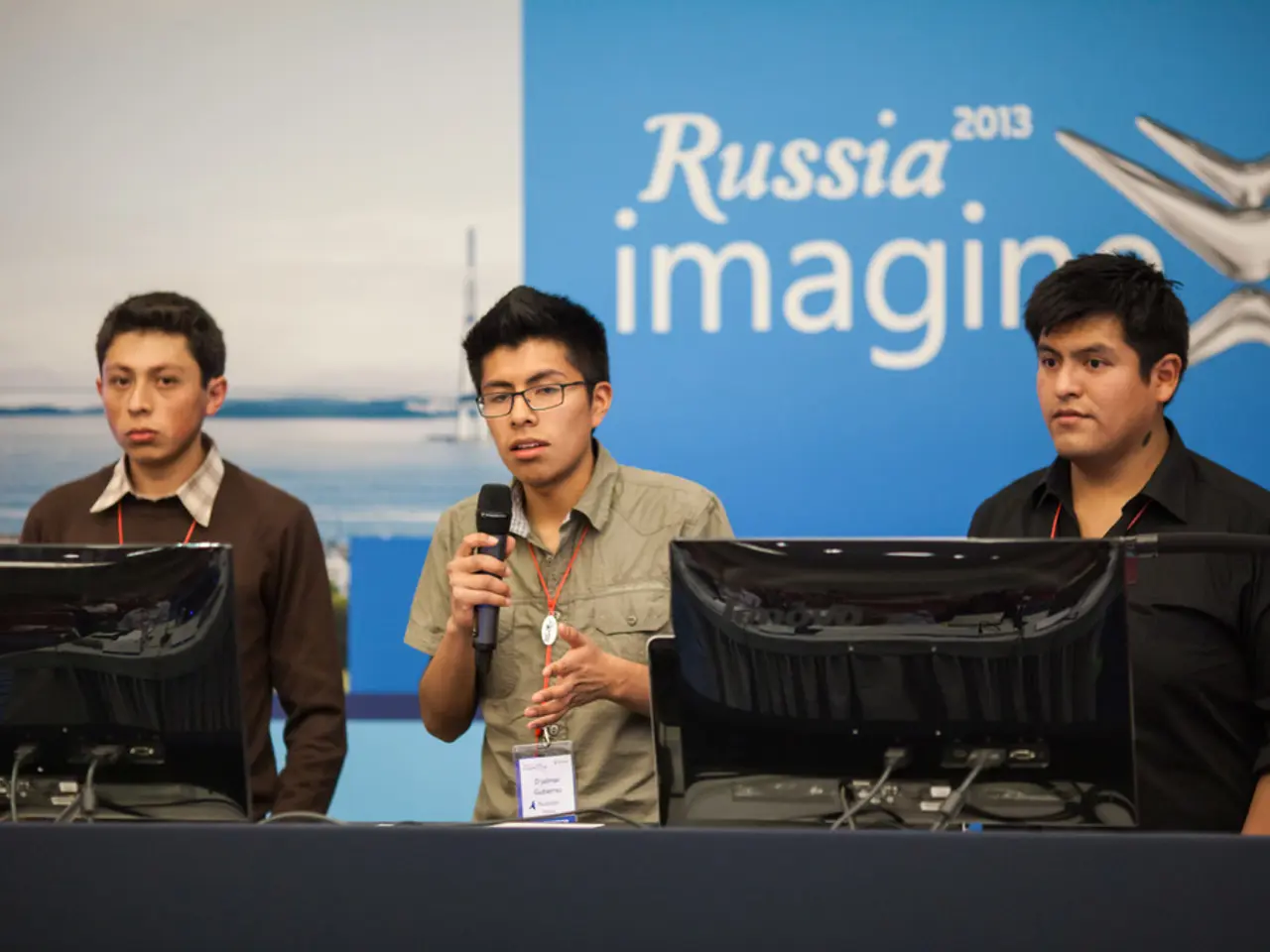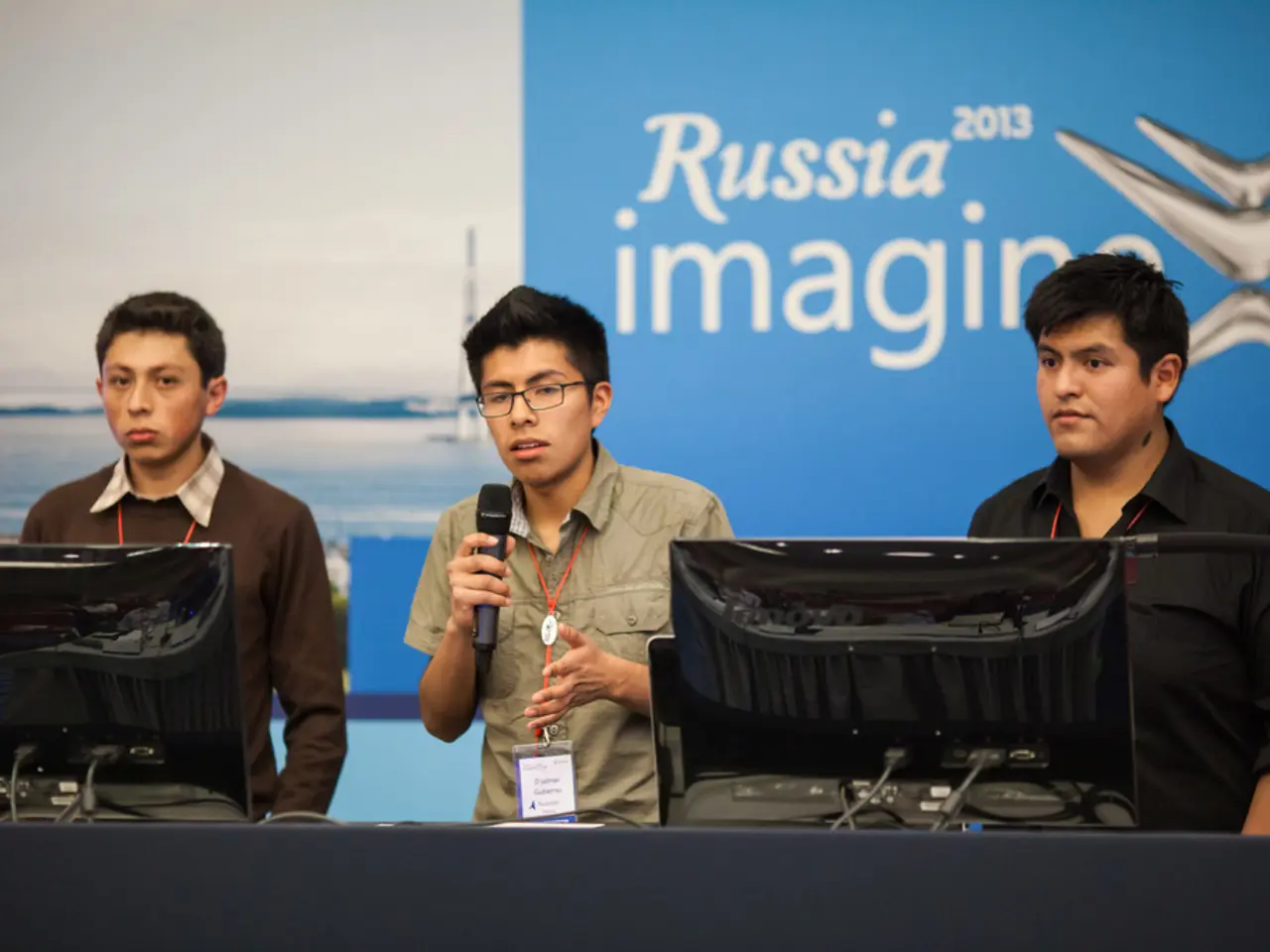Effect of Trump Administration's Science-Deterrent Policies within a Month's Timeframe
In the opening weeks of his second term, President Trump's administration has implemented a series of measures that have raised concerns within the scientific community. These changes, which focus on climate programs, research funding, and global health initiatives, could have far-reaching implications for scientific research in the United States.
One of the most significant actions has been the elimination of major climate programs, freezing or reducing grants for climate research, and the intention to shut down the Environmental Protection Agency's (EPA) greenhouse gas reporting program. This move effectively blinds the country to climate change data and impedes scientific understanding of environmental risks. Thousands of employees at climate-relevant federal agencies, including NASA, NOAA, and the EPA, have been laid off, reducing the workforce available for climate and environmental science research.
Another contentious move has been the issuance of an Executive Order titled “Protecting American Energy from State Overreach,” which aims to stop the enforcement of state climate laws and lawsuits that seek to hold fossil fuel companies accountable for past emissions. This order empowers the Department of Justice to act against state climate policies, curtailing state-level climate regulatory innovation and legal accountability for climate change impacts.
A memorandum issued on February 6, 2025, aimed to stop funding to NGOs involved in global health efforts that the administration deems “undermine the national interest.” This threatens scientific collaboration and funding streams for global health research and programs, with vague criteria for funding withdrawal.
The Trump Administration's actions have been described as "unprecedented" by Harold Varmus, a former director of the US National Institutes of Health (NIH). The rapid pace of these changes has caught many by surprise, indicating a significant shift in government priorities.
The potential long-term implications of these policies are concerning. Cutting funding and eliminating programs central to climate research and emission monitoring can weaken the scientific basis necessary for policy-making and global environmental commitments, potentially delaying critical intervention efforts. Large-scale layoffs in scientific agencies risk damaging institutional knowledge and reduce the federal government's ability to conduct or support robust scientific research, potentially impairing U.S. leadership in key scientific fields.
The federal executive order targeting state climate laws also threatens to legally restrain states from pursuing aggressive climate policies, limiting a vital layer of climate governance and weakening legal avenues to hold polluters accountable. Restricting funding to NGOs involved in global health based on political criteria may disrupt international scientific collaboration and weaken U.S. contributions to global health research and crisis response.
Experts and stakeholders are closely monitoring developments and advocating for policies that prioritize scientific progress and innovation. The coming months will be crucial in determining the path forward for science under Trump 2.0. The need for bipartisan support for science and evidence-based policymaking is more critical than ever.
References: [1] ABC News, (2025). Trump Administration's Climate Policies Under Scrutiny. [online] Available at: https://abcnews.go.com/Politics/trump-administrations-climate-policies-scrutiny/story?id=83459302
[2] The New York Times, (2025). Trump Issues Executive Order to Block State Climate Initiatives. [online] Available at: https://www.nytimes.com/2025/04/08/us/politics/trump-climate-executive-order.html
[3] The Washington Post, (2025). Thousands of Employees at US Science Agencies Laid Off Due to Trump Administration's Changes. [online] Available at: https://www.washingtonpost.com/national/health-science/thousands-of-employees-at-us-science-agencies-laid-off-due-to-trump-administrations-changes/2025/03/01/8d216e3a-c8f3-436d-9e59-20f42d735a20_story.html
[5] Science Magazine, (2025). Trump Administration's Memorandum Threatens Global Health Research and Programs. [online] Available at: https://www.sciencemag.org/news/2025/02/trump-administration-s-memorandum-threatens-global-health-research-and-programs
- The scientific community is expressing alarm over President Trump's second-term policies, particularly those aimed at climate programs, research funding, and global health initiatives, fearing they could halt scientific progress in these areas.
- The elimination of climate programs, reduced funding for climate research, and the discontinuation of the EPA's greenhouse gas reporting program could limit America's access to climate change data, hampering scientific understanding of environmental risks.
- Political considerations appear to be at play in the administration's decision to halt funding to NGOs involved in global health efforts, potentially disrupting international scientific collaboration and threating global health research and crisis response.
- The federal order blocking state climate laws not only undermines state-level climate regulatory innovation, but also limits legal accountability for climate change impacts, while also potentially impeding future efforts to hold polluters accountable.








